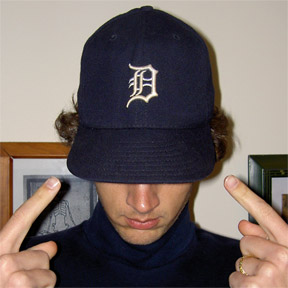?Quien es el mas metal?
Hi, my name is Com$tock, and I'm a metal newbie. I didn't really think of myself in those terms until I read this incredibly detailed defense of metal against the hipster hordes of false metalheads. (Got some time on your hands? This essay is one suprisingly long labor of love.)
I feel this author's pain. I am awed by the detail in his work. And yet I feel kinda defensive. I love metal, but I feel caught in his crosshairs. I've banged my head to Sabbath, Clutch, and Pantera for more than a decade. But I started off as more of a punk fan, then I moved through alternative to indie. My full metal love didn't blossom until about a year-and-a-half ago, after I discovered Mastodon through--shudder, true metalheads--Pitchfork.
Since then, I've enjoyed a fair amount of metal, but probably some false metal, too. Meshuggah (my fave), Isis, Maiden, Don Cab, early Metallica, and Dillinger Escape Plan have all rocked me in that time. My metal collection is not massive, but I know about bands I had never heard of before, like Celtic Frost.
So am I a false metaller? I really love the music, man, and pretty much without irony. Bellowing about mythological entities is always going to be a little silly, no? But I guess there is fun silly and snide silly. To me, a band like Lair of the Minotaur seems to embody how I feel about this. How can I not fucking love a song with the name "Juggernaut of Metal"? How can I not also smile at that?
But I don't know a lot about the metal underground and its folkways. I'm a tourist there. I want to know more, but I'm not sure I really want to move in. Music scenes always obsess over who is in and who is out. I used to get very excited explaining why the Dead Kennedys were super punk but the Exploited were posers (trust me, my 13-year-old suburban self was a poser).
I hate to offer the outsider's defense, the voice of assumed maturity, but isn't it ultimately about the music? If you found a cd on the ground with no label--or to keep it up-to-date, if someone emailed you an untitled mp3--and it rocked you, isn't that enough? What if you then discovered that it was from a band who four years ago put out a rap-rock album?
I just wanna rock out, heavily. I don't want to worry about authenticity. There is always someone mas metal que tu.

